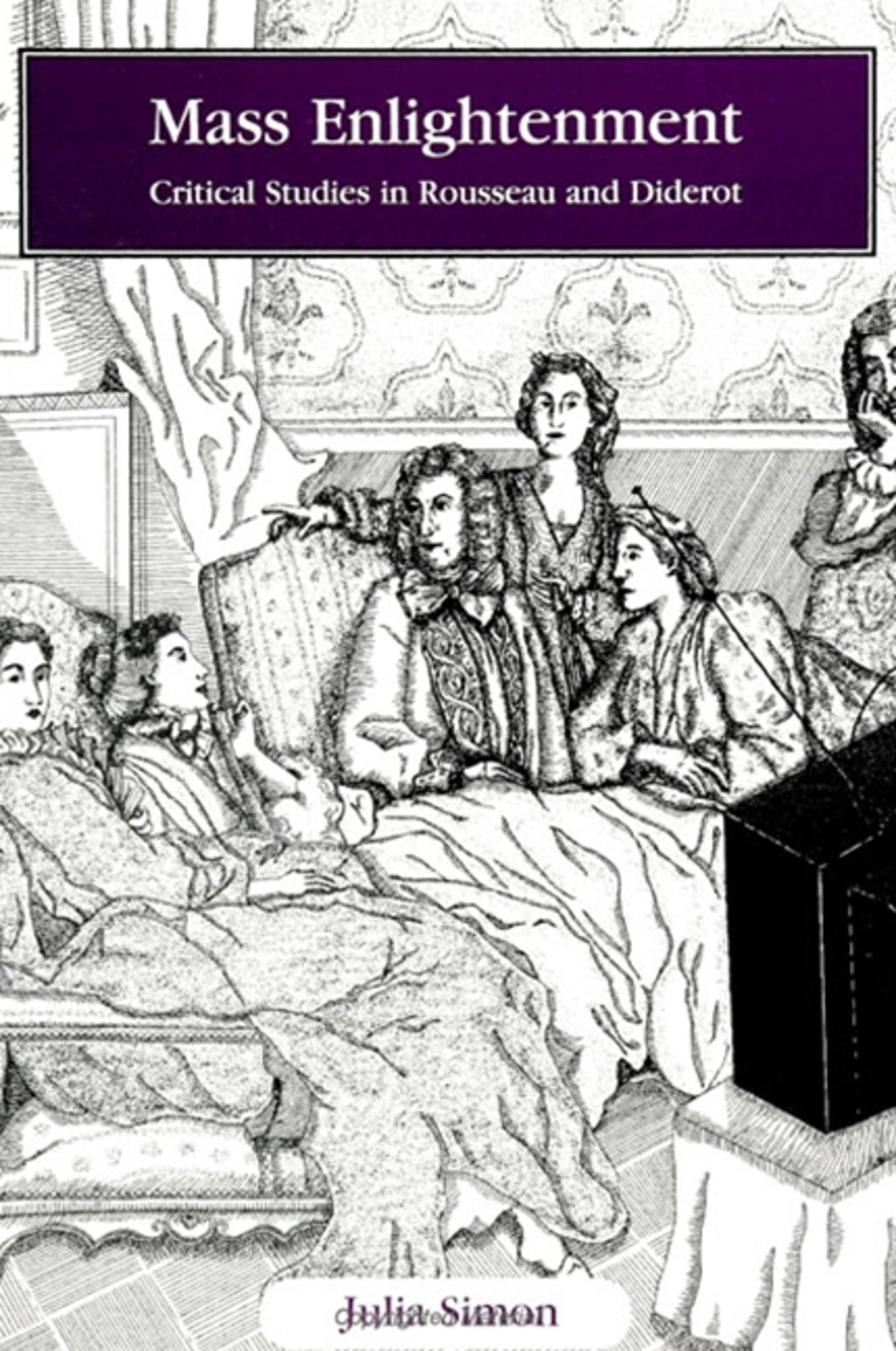We're sorry. An error has occurred
Please cancel or retry.
Mass Enlightenment

Some error occured while loading the Quick View. Please close the Quick View and try reloading the page.
Couldn't load pickup availability
- Format:
-
14 September 1995

Using the writings of the critical theorists of the Frankfurt School as a framework, this book uncovers the tensions and contradictions associated with the rise of capitalism as manifested in the writings of Rousseau and Diderot.
Mass Enlightenment uncovers the tensions and contradictions associated with the rise of capitalism and mass culture as they were already making themselves felt during the second half of the eighteenth century and shows that the works of Rousseau and Diderot display a manifest awareness of the negative side of "enlightenment" and "progress." Simon explores the themes of individual freedom and moral autonomy, the growth of a consumer market, alienated social relations, the split between the public and private spheres, and the appearance of commodification as they are articulated in the writings of Rousseau and Diderot. Her careful readings of these Enlightenment theorists expose concerns over the crisis tendencies associated with capitalism and a consumer market similar to those diagnosed by the writers of the Frankfurt School.


"This is an intriguing and provocative study of two major French Enlightenment philosophes from the Marxian perspective of Frankfurt School thinkers Weber, Adorno, Horkheimer, and Habermas. The picture of Diderot and Rousseau that emerges can go a long way toward changing the modes in which these authors have traditionally been regarded and taught, that is to say, as prophets of progress and heralds of the positive forces of enlightenment." — Bernadette Fort, Northwestern University
"Simon's idea of reading the concerns of the Frankfurt School back into the eighteenth century is an interesting one. The book is jargon free, fun to read, and thought provoking. It seems to me to be of wide interest: to scholars of Rousseau, Diderot, and eighteenth-century French philosophy in general, as well as to literary critics, political theorists, and those interested in the Frankfurt School." — Georgia Warnke, University of California, Riverside
"What I like most about this book is its coherence and synthetic clarity. Mass Enlightenment makes a strong case for thinking of Rousseau and Diderot as precursors of the tradition of critical theory." — Jay L. Caplan, Amherst College
Preface
Acknowledgments
Critical Introduction
1. Alienation, Individuation, and Enlightenment in Rousseau's Social Theory
2. Rousseau and the Problem of Community: Nationalism, Civic Virtue, Totalitarianism
3. The Public Sphere, Alienation, and Commodification:Rousseau's Autobiographical Writings
Transitional Interlude
4. Materialist Hermeneutics: Diderot's Rêve de d'Alembert
5. Diderot and Hegel: Alienation and the Problem of Ethical Life in Le Neveu de Rameau
6. The Public/Private Dialectic Revisited: Diderot's Art Criticism
Conclusion
Notes
Selected Bibliography
Index



